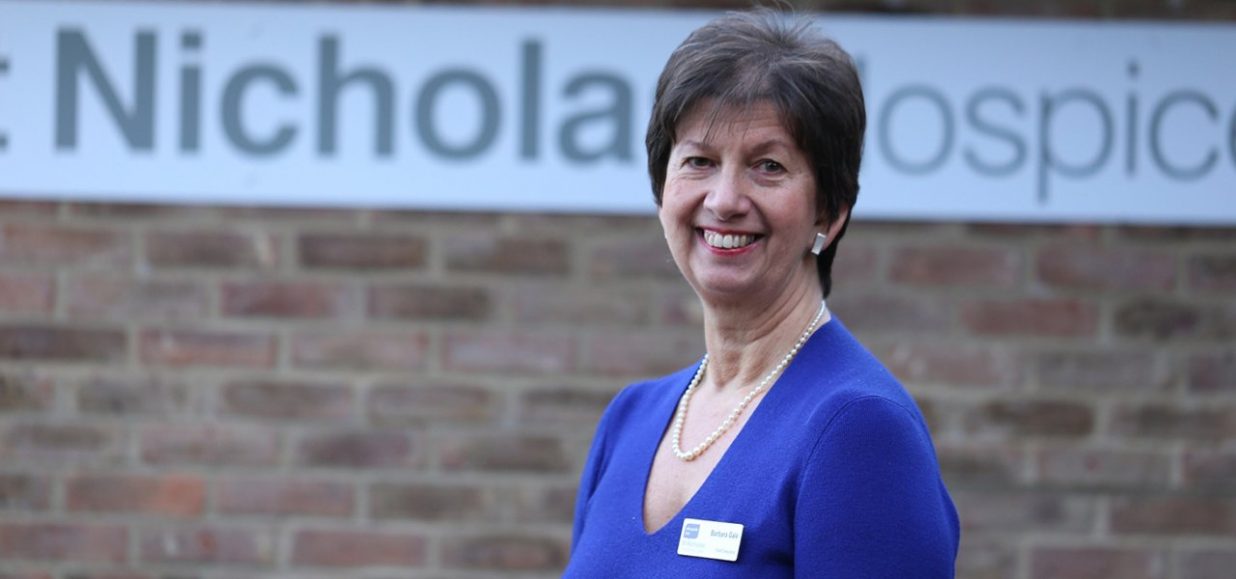Call our 24/7 advice line for health care professionals and families if you need support with symptom management and end of life care - 01284 766133.
Do we need more volunteers in healthcare or is there a more obvious solution?
I was interested to read the article in The Times by Sir Tom Hughes-Hallett about HelpForce a volunteering scheme where “vulnerable patients will be accompanied through the health system by a safe and reliable volunteer”. Patients will have help to collect prescriptions, get moving out of bed and even sit with them when they are dying.
As a hospice CEO who has worked with volunteers for more than 30 years, I have seen the help they can give, I know hospices would not function without the amazing support of thousands of volunteers and I am sure that our healthcare system could benefit too – first responders are already great examples of this.
However, I believe as professionals we often turn to volunteers to help us, rather than turning to a patient’s own family, friends and even their local community. For those of us working in palliative care, we see that we are now paying the price of not involving people in dying, caring and grieving – the price where a community lacks the confidence, skill and knowledge to be able to support each other in death and grief.
I believe most people would like someone they know to help them through the health system. Yet it is not always easy for family and friends to be as involved as they may like to be. Only those identified as carers are allowed into the health system.
We have much to learn from other countries where family and friends are expected to help and can be a constant reassuring presence in hospital.
I know that some people will feel they have no one to be there for them, but many communities already have groups and volunteers that visit and help the elderly and vulnerable in their communities. Rather than add an extra burden on our healthcare system by recruiting, training and supporting volunteers wouldn’t it be better to use the assets we already have in communities to support people. This could then give additional benefits as this support could continue when people go home.
Cormac Russell (Cormac is Managing Director of Nurture Development and a faculty member of the Asset-Based Community Development (ABCD) Institute at Northwestern University, Chicago) reminds us that if we want stronger communities to support people when they are vulnerable, volunteers can play a role, however we must not forget the role that family, friends and community can play, as they can be more flexible and responsive and can visit and without a DBS, induction, training and supervision.

